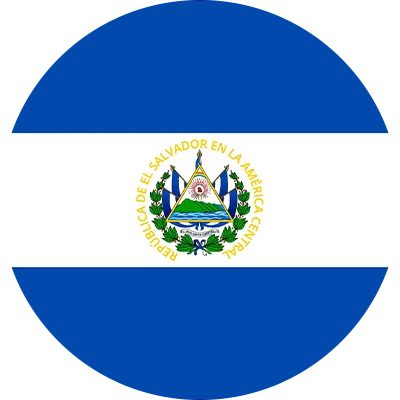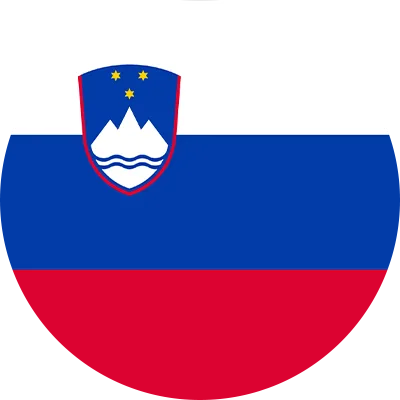NOTICE
Due to the ongoing regulatory uncertainty within the EU resulting from the MiCA implementation, we are no longer providing EU licensing services until further notice. If you require licensing solutions, we recommend considering alternative jurisdictions such as Switzerland SRO, Dubai VARA, or the El Salvador Crypto License.
This notice, dated 7 March 2025, is provided solely for general guidance and does not constitute legal, financial, or regulatory advice.
Solvenia CASP Update
Introduction – Overview of the MiCA Act
Markets in Crypto-Assets (MiCA) is a new regulation introduced by the European Commission to establish a unified regulatory framework for the crypto-asset market across Europe. The act primarily targets the cryptocurrency and virtual asset sectors, aiming to regulate market participants, protect investors, combat market manipulation, money laundering, and fraud, and further promote innovation, integrity, and growth in the crypto market—all while ensuring market security.





Key Aspects of the MiCA Act
1. Unified European Regulation
MiCA applies to all crypto-asset service providers (CASPs) across the EU, including cryptocurrency exchanges, payment platforms, custodians, and more. It also introduces specific regulations for certain crypto-assets, such as stablecoins. Under MiCA, all companies offering crypto-asset services within the EU are required to obtain a CASP license to meet regulatory standards.
2. Information Disclosure Requirements
The MiCA Act mandates crypto-asset issuers to publish a detailed white paper, disclosing project information, potential risks, and other critical details, allowing investors to fully understand each crypto-asset’s characteristics and potential risks.
3. Prevention of Market Manipulation and Money Laundering
The MiCA Act imposes strict rules on market manipulation and insider trading, requiring market participants to adhere to high standards of conduct. In addition, all CASPs must implement Anti-Money Laundering (AML) and Counter-Terrorism Financing (CTF) measures, including rigorous Know Your Customer (KYC) procedures and transaction monitoring, to prevent illegal activities in the crypto market.
4. Special Provisions for Stablecoins
MiCA establishes specific requirements for stablecoins pegged to fiat currencies, requiring issuers to hold sufficient reserve assets to support the stable value of the coin.

Overview of MiCA Act Implementation in Slovenia
The MiCA Act will officially come into force on January 1, 2025. At that time, all Virtual Asset Service Provider (VASP) licence holders are required to upgrade their licence to a Crypto-Asset Service Provider (CASP) licence. Unlike other EU member states, Slovenia has not established a transition period. According to the EU MiCA regulation, VASP-licensed companies must complete their license renewal by July 1, 2026, or face the risk of operating without a license.
*Note: The following content is our forecast on how the MiCA Act is expected to be implemented in Slovenia.

The Regulatory Authority
In Slovenia, virtual assets are regulated by the Office for Money Laundering Prevention (OMLP). The OMLP is responsible for approving and overseeing VASP licenses, ensuring strict compliance with the Slovenian Anti-Money Laundering and Counter-Terrorism Financing Act (ZPPDFT-2).
CASP License Allowed License Holder to Provide the Following Service:
- Custody and management of crypto-assets on behalf of clients
- Operation of a crypto-asset trading platform
- Exchange of crypto-assets with fiat currency
- Exchange between different crypto-assets
- Execution of orders for crypto-asset transactions on behalf of clients
- Placement services of crypto-assets
- Reception and transmission of crypto-asset orders on behalf of clients
- Crypto-asset advisory services
- Portfolio management services for crypto-assets
- Transfer services for crypto-assets on behalf of clients

What Kind of Businesses are Encouraged to Licence as CASP?
The CASP licence applies throughout Europe. If your business engages in any of the following activities, it is advisable to apply for a CASP licence:
- Cryptocurrency exchanges
- Custodian service providers
- Payment and remittance platforms
- Cryptocurrency wallet providers
- Virtual asset lending platforms
- Decentralised finance (DeFi) service providers
- Virtual asset payment gateways
Requirements for CASP Licence Upgrade
1. Documentation
A complete set of documentation is a crucial part of any licence application. The following is a list of documents your company need to be prepare:
- Business Plan
- Financial Forecasted
- Safeguarding Policy
- Accounting Policy
- Organisational Structure Chart
- AML/CTF Policy
- Conflict of Interest Resolution
- ICT Policy
- Client Complaint Handling Procedure
- Outsourcing Policy
- Directors’ CVs
- Clean criminal records of Directors and Shareholders
2. Qualified Organisational Structure
The regulatory framework requires a specific organisational structure for CASPs. Based on your existing VASP structure, you should have:
- At least one local director, and
- An AML officer.
These senior officials have to reside in Slovenia or any EU member state. Given cultural and language barriers plus communication costs in consideration, we recommend choosing Slovenian locals when possible.
Note: All directors, shareholders, and senior management must provide proof of no criminal record and proof of non-bankruptcy.
3. Physical Office
An independent and lockable office is a must. Shared office spaces with separate room numbers are acceptable, but desk-only or co-tenancy arrangements with other businesses are prohibited.
4. Initial Capital and Bank Account
Minimum capital requirements under Article 67 of MiCA are as follows:
- EUR 50,000: for order execution, brokerage, crypto-asset transfers, etc.
- EUR 125,000: for crypto-asset storage and exchange
- EUR 150,000: for operating a trading platform
CASP licence applicants must establish a corporate account in Slovenia or any other EU member state and deposit the required registered capital.
Process and Timeline for CASP License Upgrade in Slovenia
- Preparation of application materials: 30 days
- Regulatory review of the application: 30 days
- Additional regulatory requirements: 20 days
- Final regulatory approval: 40 days
Total Estimation Timeline: Approximately 4 months
Other Recommended Licences


Switzerland
Renowned for its strong reputation and offering the most comprehensive functionality for crypto services.


Canada
A cost-effective license to conduct both payment and crypto activities, making it attractive for new market entrants.


El Salvador
A pioneering country in the adoption of Bitcoin as legal tender, fostering crypto-friendly opportunities.


Solvenia
A stable jurisdiction with a longer transitional regulatory period (from VASP to CASP) until July 2026.
FAQs: Solvenia MiCA Act Guide
Starting from July 1, 2026, all VASP licenses will expire. Companies that have not completed the license upgrade must cease operations, or they will be considered unlicensed and face legal risks. To avoid business disruptions and potential penalties, we recommend that licensed companies begin the process of upgrading to a CASP license as soon as possible to avoid the predicament of operating without a license.
Yes, Slovenia has not established a transition period. According to the MiCA regulation, all VASP licenses will automatically expire after July 1, 2026. Companies that have not completed the upgrade will no longer be able to operate legally and will be considered unlicensed.
A qualified CASP licence holder should be managed by culturally diverse and experienced personnel. Management teams or boards should consist of professionals with expertise in fintech, IT, risk and compliance, and operational management to increase the likelihood of licence approval. We recommend including at least two individuals with fintech expertise on the board.
Senior management must also provide the following:
- Clean criminal record and proof of non-bankruptcy
- Detailed personal resume/CV
- Commitment to dedicating time to the licensed company
The CASP license upgrade is conducted through paper review (documentation) only. If your company already has a website or app in place as a VASP, the ICT policy can be designed and written based on the current system.
Maintenance costs vary based on existing configurations. Regular expenses include annual audits, quarterly reports, software subscriptions, staff salaries, office rent, utilities, and more. If the VASP configuration remains similar, additional costs may not increase significantly; however, if it differs substantially, maintenance costs could rise accordingly.
We take charge of all necessary documentation. What you need is to form a project team to provide feedback and insights on prepared materials, such as the current IT system set up for the ICT policy.
We have close partnerships with several European banks and will assist in setting up corporate bank accounts.
Slovenian is the official language. All documents submitted to the OMLP must be in Slovenian, which may involve translation costs. In addition, our team speaks English and Chinese fluently.
Personnel management can be challenging, especially with team members from diverse backgrounds, regions, companies, or departments. This increases communication costs and complicates management. Regulatory expectations also pose a challenge as regulators focus on financial security and stability, which may differ from entrepreneurial objectives. We act as intermediaries to coordinate relationships and ensure project progress.
With seven years of experience in the compliance market, we have provided licensing solutions to over 20 fintech companies. Think of us as your internal compliance team. We will manage all ongoing licence maintenance matters.
After obtaining the licence, companies must fulfil compliance obligations such as submitting quarterly/annual reports, conducting customer due diligence, and adhering to AML regulations to ensure regulatory alignment and minimise compliance risks.
Non-compliance may lead to penalties, including fines or, in severe cases, licence revocation. Establishing a qualified compliance team with appropriate systems is essential to reduce compliance risks.
We recommend subscribing to updates from Slovenia’s Office for Money Laundering Prevention. Additionally, we can provide ongoing insights and updates on regulatory changes affecting your operations to ensure you remain informed.
A business plan should include an executive summary, market analysis, detailed information on products and services, marketing strategies, operational plans, SWOT analysis, and a comprehensive financial forecast.
The financial forecast should provide detailed revenue projections, cost structure, and cash flow management for the next three years, including multiple scenarios: normal, best-case, and worst-case.
The ICT policy should cover access control protocols, data protection measures, incident response strategies, employee training, and regular security audits.
Directors’ resume/ CVs should detail their professional experience, previous roles, and highlight qualifications relevant to their role.
The outsourcing policy should address policy purpose, scope, vendor selection criteria, contract management, risk management, service quality monitoring, and compliance requirements.
The safeguarding policy should detail processes for fund receipt and management, payment procedures, risk management, audit compliance, and client information protection.
The conflict of interest resolution policy should define conflicts of interest, include disclosure requirements, assessment procedures, resolution strategies, and establish monitoring and auditing mechanisms.
What Clients Say About Our Services





